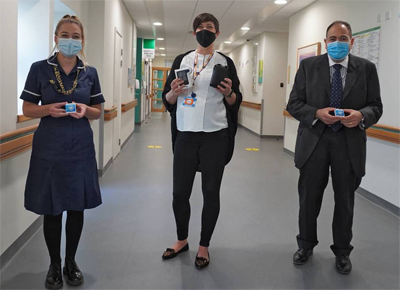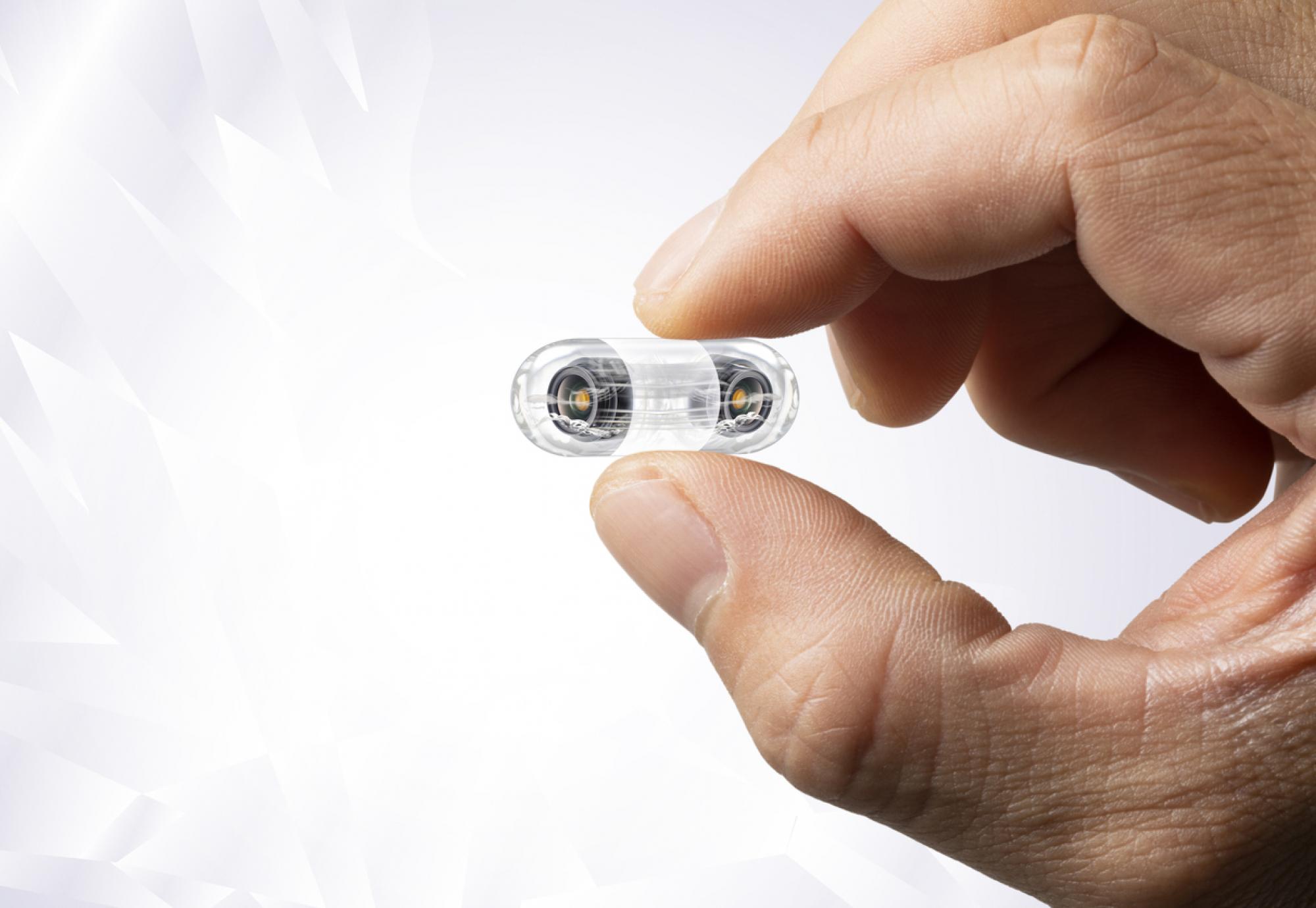Miniature cameras which can be used to check for bowel cancer are now being piloted at Great Western Hospitals NHS FT.
During the trial an initial group of 11,000 NHS patients will receive treatment.
The first patient received treatment yesterday, where they had to swallow the colon capsule endoscopy.
The Trust will be one of four NHS trusts in the south west to pilot these cameras, which are the latest NHS innovation to help patients access non-invasive cancer checks at home.

Pictured above, left to right: Amy Cripps, Two-week Wait Colorectal Cancer Specialist Nurse; Stacey Fussell, Thames Valley Cancer Alliance - Cancer Services Improvement Programme Manager; and Anwar Owais, Consultant Colorectal Surgeon; showing the PillCam and reader.
Mr Owais, Consultant Colorectal Surgeon, who is leading this project in Swindon, and who will be providing this service, said: "We are really excited to be one of four NHS trusts in the south west to pilot this new technology and I think this will be a great step forward towards improving the experience for patients needing a colonic investigation.
“I am very proud and honoured to be part of this project in Swindon.
"Importantly, the capsule cameras will help to speed up the checks and avoid delays in cancer diagnosis.
“It will also help us identify which patients can be discharged and which patients need further investigations."
The colon capsule endoscopy provides high quality images of the whole gastrointestinal tract, from the mouth to anus, which allows a more holistic assessment on the patient to be carried out.
It also offers a more patient friendly alternative to existing investigations.
The imaging technology, in a capsule no bigger than a pill, can provide a diagnosis within hours with minimal inconvenience to the patient.
Traditional colonoscopies involve inviting patients to hospital for an outpatient procedure, where they will have a tube inserted into the large intestine.
This can be a rather invasive procedure, whereas the new technology will mean that after swallowing the capsule, people can continue to go about their normal daily activities.



















